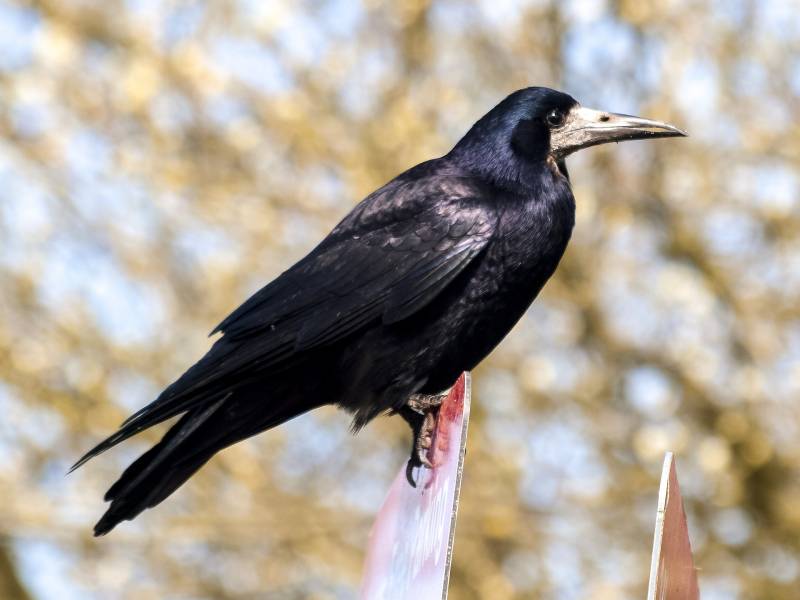Содержание
Everyone knows that corvids — crows, rooks, ravens, and magpies — are clever. They solve complex problems, reward friends and recognize enemies, and even make tools. But the staff of one park in France is using the intelligence of the park’s resident rooks to make the park better for everyone.
What are Rooks, Precisely?

Rooks are large birds related to crows, ravens, and magpies. They’re about the size of a carrion crow, but, unlike crows, have a greyish black bill, and grey or white skin around the base of the skull near the eyes. Rooks are native to Europe and Asia, from the eastern tip of Portugal, all the way to the westernmost part of Japan. They’re omnivores, feasting primarily on worms and insects. However, they also enjoy fruit, nuts, grains, and even smaller birds and their eggs.
Birdbrains? Not so much.
New Caledonian Crows are among the most intelligent species on earth. Famously, scientists have documented their ability to make complex, three-step tools. They even have regional tool-making traditions, which they pass down through generations. Check out this New Caledonian Crow not only making a tool but making a tool that will allow it to access a different tool.
Another kind of corvid, the Australian magpie, is multi-lingual. Scientists have observed the Australian magpie eavesdropping on other birds. From the information the magpies gather, they can tell not only when predators are near, but also what kind of predator it is. The Magpies then warn their compatriots and then get out of the way themselves.
Scientists haven’t observed this level of complexity in rooks…yet. However, rooks have demonstrated the ability to solve complicated puzzles and use tools.
Harnessing Corvid Intelligence
Nicolas de Villiers, president of the Puy du Fou Historical Park in west-central France, has come up with a unique way to use the intelligence of the park’s resident rooks. Not only are these birds very, very clever, Villiers told the Guardian, but they’re also very sociable. They love to interact with people, especially through games.
So, much like a human parent might do with a toddler, park staff have made cleanup a game. Villiers and his staff are training the park’s rooks to retrieve trash like papers and cigarette butts, and deposit it into special receptacles. When they do, the receptacle hands out a food treat.
Villiers told the Guardian, “The goal is not just to clear up.” But also to show visitors that “nature itself can teach us to take care of the environment.” Villiers told NPR, “The purpose of the crows … is to educate the people, to open their minds, to think, ‘OK, the birds are able to do something that we are much more able to do than them, so we should do this by ourselves.’ ”
The park has trained six rooks so far — Boubou, Bamboo, Bill, Black, Bricole, and Baco. The park’s newest employees will start work at the end of August 2018.
You can learn more in the video below.

Featured Image: CC0 by frolicsompl via Pixabay










